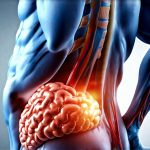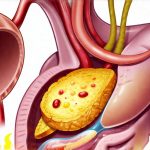Acid reflux, often experienced as heartburn, is a common condition affecting millions worldwide. It occurs when stomach acid flows back up into the esophagus, causing irritation and discomfort. While many associate it with dietary factors or lifestyle choices, there’s growing recognition of the intricate link between physical health and mental wellbeing, particularly concerning anxiety. Understanding this connection isn’t about blaming one for the other, but rather acknowledging a complex interplay that can significantly impact overall quality of life.
This bidirectional relationship means acid reflux symptoms can sometimes be worsened by anxiety, and conversely, experiencing frequent acid reflux can contribute to feelings of anxiety. The gut and brain are in constant communication, creating what’s known as the gut-brain axis, a pathway that influences both physical and emotional states. This article will explore the nuances of this connection, offering insight into how these two seemingly separate systems interact and potential strategies for managing them together.
The Gut-Brain Axis: A Two-Way Street
The gut-brain axis isn’t simply a metaphorical concept; it’s a recognized physiological pathway involving direct connections like the vagus nerve, as well as indirect routes through the immune system and hormonal signaling. This means what happens in your gut can directly influence brain function, and vice versa. Anxiety, for example, triggers physiological changes – increased heart rate, rapid breathing – that also impact digestive processes.
This constant communication explains why stress often “upsets stomachs” or causes digestive upset. Similarly, chronic digestive issues like acid reflux can contribute to anxiety as individuals worry about symptoms, potential complications, and the impact on their daily lives. Recognizing this bidirectional relationship is key to a holistic approach to health management.
Anxiety & Acid Reflux: The Cycle of Discomfort
Anxiety doesn’t just cause emotional distress; it triggers physical responses that directly exacerbate acid reflux. When anxious, the body enters “fight-or-flight” mode, leading to increased cortisol levels and muscle tension. These changes can impact esophageal sphincter function, the valve preventing stomach acid from flowing back up, making reflux more likely. Additionally, anxiety often leads to altered breathing patterns like hyperventilation, which creates pressure in the abdomen, further contributing to reflux symptoms.
How Anxiety Can Worsen Acid Reflux Symptoms
Specifically, heightened anxiety can lead to an overproduction of stomach acid. While some stomach acid is necessary for digestion, excessive amounts increase the risk of it flowing back into the esophagus. Moreover, anxiety frequently causes changes in eating habits – hurried meals, consuming trigger foods due to emotional comfort, or even skipping meals altogether – all of which contribute to digestive problems and reflux. The perceived stress associated with anticipating symptoms can also intensify the experience, creating a vicious cycle.
The Role of Vagal Nerve Dysfunction
The vagus nerve plays a critical role in both digestive function and anxiety regulation. It connects the gut directly to the brain, sending signals that influence motility, secretion, and overall gut health. Chronic stress and anxiety can disrupt vagal tone – the nerve’s ability to efficiently transmit signals. Reduced vagal tone is linked to increased inflammation, impaired digestion, and a heightened sensitivity to pain, potentially exacerbating reflux symptoms and amplifying anxious feelings. Supporting healthy vagal tone through practices like deep breathing and mindfulness may offer some relief.
Managing the Connection: Holistic Approaches
Addressing both anxiety and acid reflux simultaneously is crucial for effective management. This involves exploring strategies that target both physical and mental wellbeing. Lifestyle modifications such as dietary adjustments, stress reduction techniques (yoga, meditation), regular exercise, and sufficient sleep are often recommended starting points. Cognitive Behavioral Therapy (CBT) can be particularly helpful in addressing the thought patterns and behaviors contributing to anxiety related to health concerns.
Ultimately, recognizing the gut-brain connection is vital for understanding that these conditions aren’t isolated issues. They represent a complex interplay requiring a holistic approach focused on supporting both physical and mental health. Seeking professional guidance from healthcare providers can help individuals develop personalized strategies tailored to their specific needs and circumstances. This proactive and integrated approach offers the best path towards improved wellbeing and a better quality of life.


















